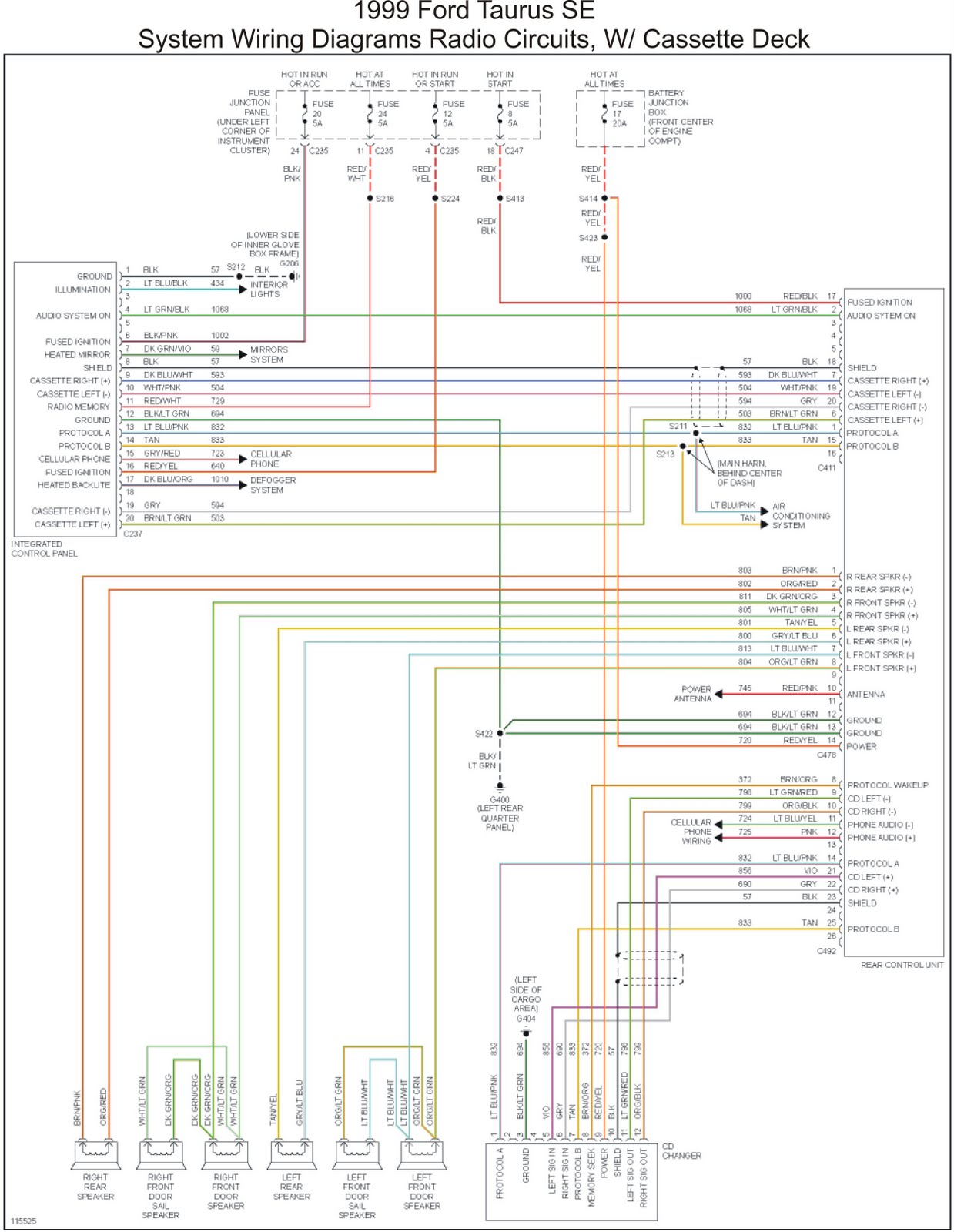When it comes to understanding the electrical system of your Ford Taurus, having access to the wiring schematic is essential. The Ford Taurus Wiring Schematic provides a detailed diagram of the electrical system, including all the wiring connections, components, and their interconnections.
Why are Ford Taurus Wiring Schematic Essential?
The wiring schematic for your Ford Taurus is essential for several reasons:
- It helps you understand the layout of the electrical system in your vehicle.
- It provides detailed information on the wiring connections and components.
- It allows you to troubleshoot electrical issues effectively.
- It serves as a guide for diagnosing and repairing electrical problems.
How to Read and Interpret Ford Taurus Wiring Schematic
Reading and interpreting the Ford Taurus Wiring Schematic can be daunting for some, but with the right approach, it can be a valuable tool for understanding your vehicle’s electrical system.
- Start by familiarizing yourself with the symbols and abbreviations used in the schematic.
- Identify the components and their connections within the diagram.
- Follow the flow of the wiring from one component to another to understand how the electrical system works.
Using Ford Taurus Wiring Schematic for Troubleshooting
When faced with electrical problems in your Ford Taurus, the wiring schematic can be a lifesaver. Here’s how you can use it effectively for troubleshooting:
- Identify the affected circuit in the schematic and trace the wiring connections to locate the issue.
- Check for continuity, resistance, and voltage at various points in the circuit to pinpoint the problem area.
- Refer to the schematic to understand how the components are interconnected and how they should function.
Importance of Safety
Working with electrical systems can be dangerous if proper precautions are not taken. Here are some safety tips to keep in mind when using wiring diagrams for your Ford Taurus:
- Always disconnect the battery before working on any electrical components to prevent electrical shock.
- Use insulated tools to avoid short circuits and electrical hazards.
- Avoid working on electrical systems in wet or damp conditions to prevent accidents.
- If you are unsure about a particular electrical task, it’s always best to consult a professional mechanic.
Ford Taurus Wiring Schematic
2006 Ford Taurus Wiring Schematic Diagram

Ford Taurus Se Wiring Schematic

Ford Taurus Wiring Schematic

Ford Taurus Se Wiring Schematic

1999 Ford Taurus SE System Wiring Diagrams Radio Circuits, W/ Cassette

Wiring Diagram For 1992 Ford Taurus
